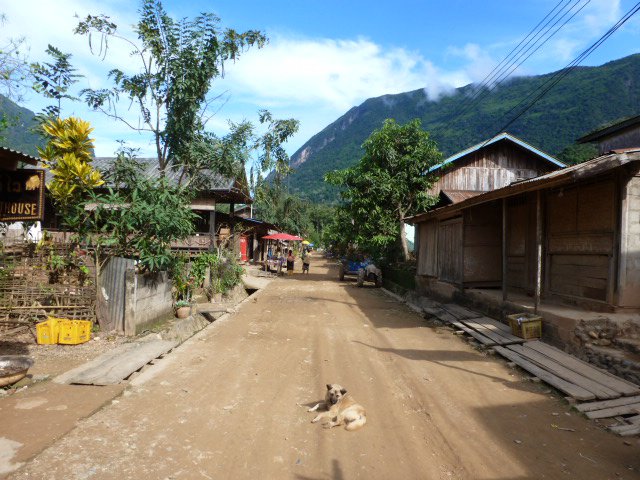He came out of the accident unhurt, more damage to his ego than to his bike or body, because his accident attracted a crowd and because he’d never come off a bike unintentionally before. And it made him think. “Although I attribute all my good fortune to luck, I evidently thought that I’d never crashed because I’m such a good rider,” he wrote. “Of course, I’ve been lucky on the bike too. I can, and do, tell myself it’s not a big deal – I just spaced out at the wrong moment. But I wonder if, as I get older, spacing out is less optional than it used to be.”

Will is 68 and, as far as I know, plans to keep cycling. Accidents happen, of course. But I wonder if – as a cyclist, or a motorist, or just a tourist on foot – an individual is less alert in places that are familiar. I think you tend to feel less at risk the more you feel at home. It’s a relief of sorts because you are more relaxed, but it’s also a loss because you notice less, your eyes are less sharp. That’s one of the great benefits of travelling to exotic corners of the world: your senses come alive to the new sights and sounds, you look at and listen to everything. You are totally in the world – even if it’s only a world of bad Laotian karaoke.
“Describing weather is easy – we have a vocabulary for it,” Will wrote from Laos. “Describing landscape, architecture, even smell is not so hard if you can find the right reference point or simile. Describing sound is the one that gives me the hardest time: the more unearthly the sound, the more unlikely the chance of a decent description. I can tell you about the experience, the abject horror, of really bad karaoke; but if you want to know what it sounds like, you’ll have to come to Laos and listen to the locals wail – drunk and tone-deaf with plenty of reverb.”

He was in Vieng Phouka, “a small town/big village in the beautiful mountains in northeast Laos, where the three adjacent restaurants all have three bamboo walls and are open to the street. Two of them are set up for karaoke and have enthusiastic practitioners. And as the evening wore on, they were accompanied by howling dogs. The dogs, who didn’t have the foresight, as I did, to hoard the earplugs from an airline kit, were not singing along, but begging them to stop.”
From there, Will cycled to Muang Khua, which was close to the Vietnam border, and then travelled south by boat to Muang Ngoi, which had a few guesthouses and only a handful of tourists. It was December 31. “It’s a beautiful place, nothing to do but walk or bike on dirt tracks to even more remote villages,” he said. “I thought it would be a great place to spend a quiet New Year’s Eve. Laotians celebrate Old Year’s Day on the 31st and New Year’s Day on January 1st. It’s a two-day drunk, with the dread karaoke going nonstop. The village had no electricity the last time I was there, but now, thanks to new Chinese-built hydroelectric plants, they can have karaoke without a generator – an improvement, I guess.”

On Old Year’s Day, Will walked to a nearby village, Huay Bo, about an hour and a half away on foot. “I got there around one in the afternoon, and the party was already on. There was a long table set up on the dirt street with about 30 people sitting at it, men on one end, women on the other, with a lao-Lao pourer walking around the table, clockwise, as custom demands, with the communal shot glass in hand. They invited me to join, but it was too early to start refusing shots of lao-Lao, so I went into the restaurant – a floor and a roof, no walls.”
[According to Wkipedia, lao-Lao is a Laotian rice whiskey and its name is not the same word repeated twice, but two different words with different tones and different meanings. The first, lao, means alcohol; the second, Lao, means Laotian.]
A man left the party to take Will’s lunch order. This conversation ensued:
Will: “Pho with duck.”
Man: “No duck.”
Will: “Pho with pork?”
Man: “No pork.”
Will: “Pho with chicken?”
Man: “Sorry. No have meat.”
But then the man’s face lit up. “Today I kill dog for party,” he said. “Want fried dog and sticky rice?”
“Well,” replied Will, hesitating briefly. “Yes, I do.”
He’d eaten dog once before, in Vietnam. “It was okay,” he wrote, “but not so good that I wanted to eat it again. But why not try the Lao version?”
The owner of the restaurant, a Mr. Kee, brought his plate, put it in front of him and then grabbed the biggest piece of meat. “I love dog meat,” Mr. Kee said. “Eat like this.”
“So I learned,” Will concluded, “that in Laos if you want to eat something, you pick it up and put it in your mouth. Lao fried dog was spicy and delicious. I’ll try it again if I get the chance.”





